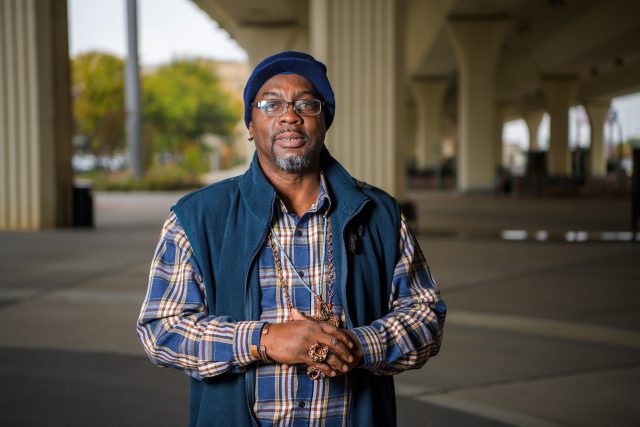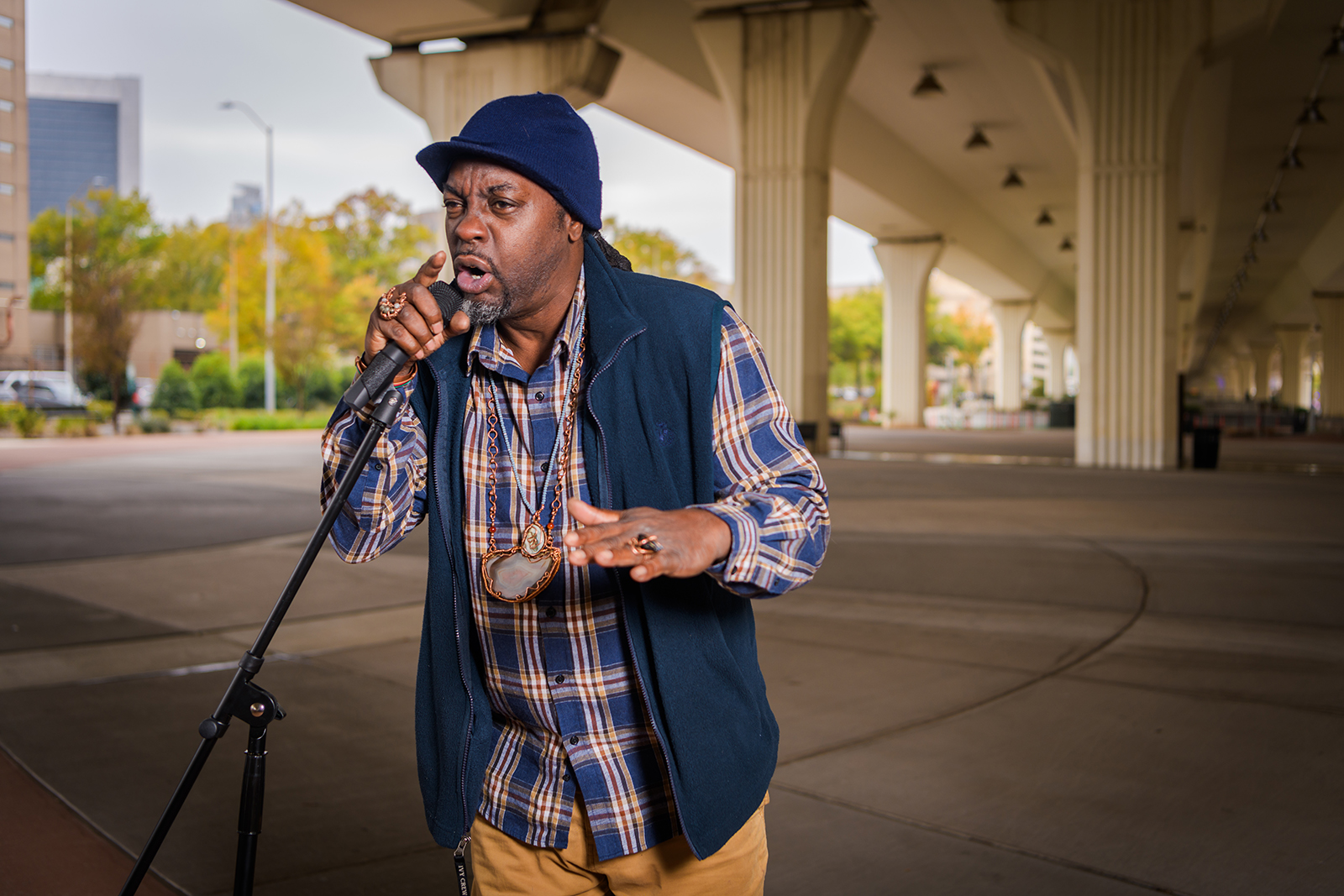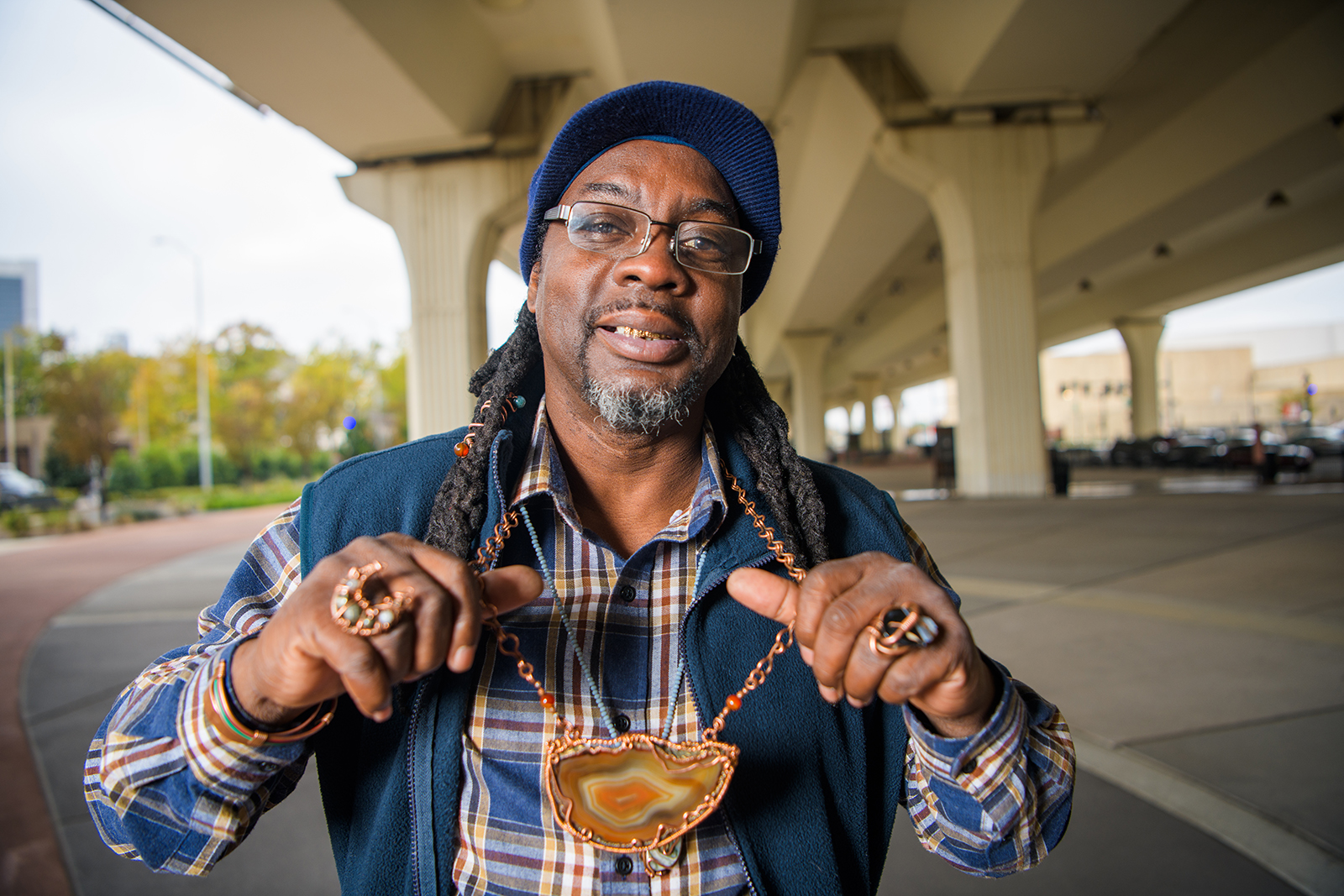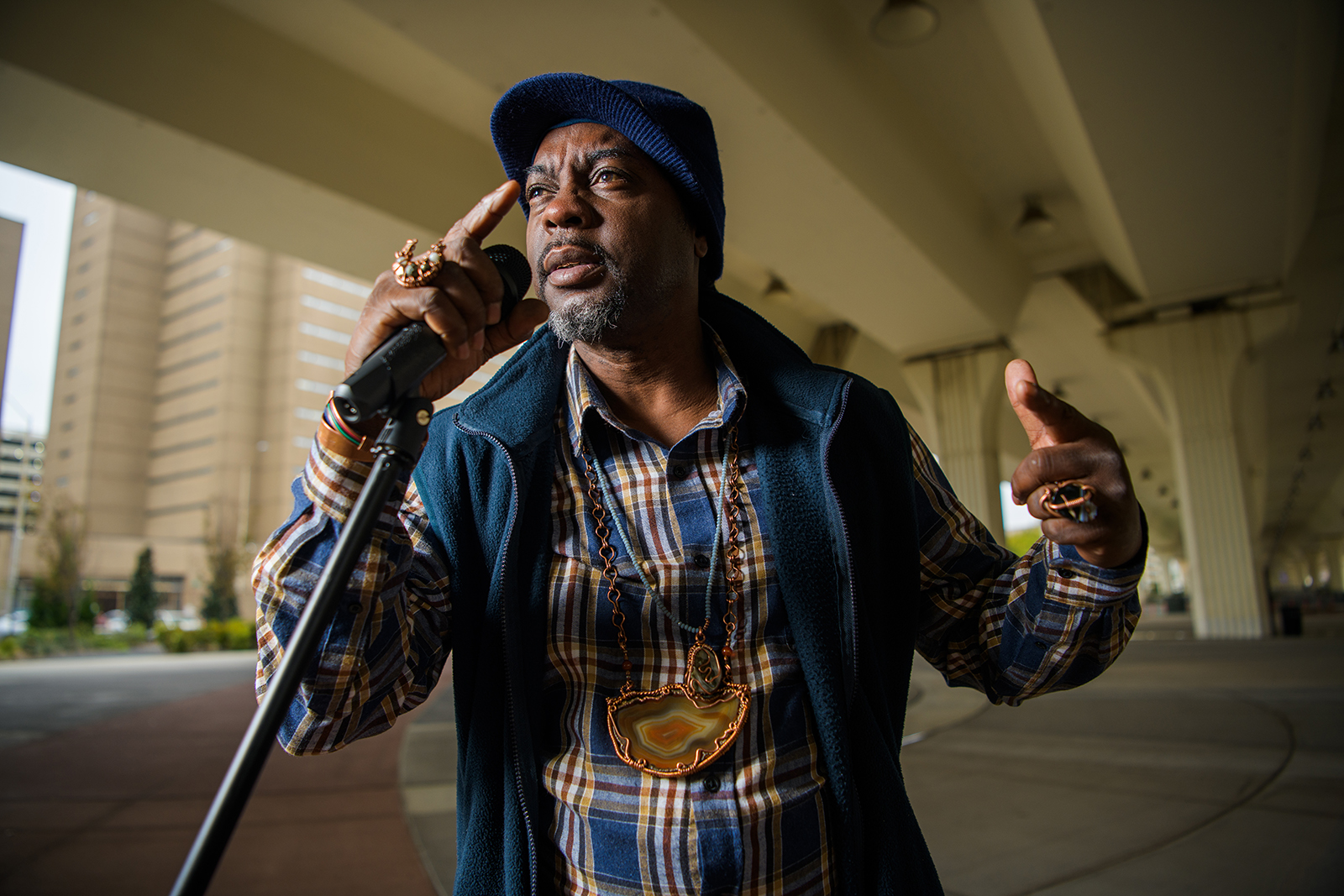
By Je’Don Holloway-Talley | For The Birmingham Times
This is another installment in The Birmingham Times/AL.com/CBS42 joint series, “Beyond the Violence Click here to sign up for the newsletter.
Many may know Anthony “AntSki” Williams from RESTORE, a Birmingham-based juvenile reentry program that offers goal setting and conflict resolution workshops or through the Crescent Cultural Community Center, a place of education, social enrichment, and quality of life resources that have become key factors in addressing crime.
“By knowing who you are and where you come from and tapping into your highest potential you can achieve anything,” said Williams, 49, a program manager at RESTORE and executive director of the Crescent Center, located on Tuscaloosa Avenue in Birmingham’s West End.
What many may not know is that Williams has a song titled “Man Business” that impressed a member of the National Academy of Recording Arts and Sciences, which is known for the annual televised Grammy Awards ceremony that recognizes achievements in the music industry.
“A producer I’d been using for years is a member of [the Recording Academy], and I made a song that grabbed his attention, [so] he pushed to have it considered for a Grammy for Best Rap Song in 2025,” Williams said.

While the song did not make it past the consideration phase and through to the nominee’s list, Williams said the song is “my ode to the arrival of manhood.”
“I told a lot of my story,” he continued. “It’s my personal expression of how I arrived and evolved as a man. I wasn’t trying to tell nobody how to be a man or give an opinion of what a real man is, I am just speaking on how I got here. It’s a rite of passage, but the passage into manhood is different for every man. No man takes the exact same path to [evolution], but this song is a good road map for young Black men to model.
“In the video, you can see how I tie rites of passage together from the West African drummers and dancers to the high school frats doing their signature steps. … Shown here on YouTube It shows me teaching and mentoring the youth.”
“Conscious-Trap”
Art depicts life for the father and husband, who describes his genre of music as “conscious-trap.”
“I’m one and the same,” said Williams. “The man ain’t no different from the artist. I live what I write, and I write what I live. It goes hand in hand. My music is like a combination of things that are true to the soul that you can grab out of my music, and I think that true reflection is what you see and feel in my bars.”
Those experiences include a seven-year sentence served at several Alabama Department of Corrections facilities. Williams was arrested in 1991, convicted in January 1993, and began his sentence in February 1993. He was released on probation on Sept. 28, 2000.
He grew up in poverty in the Ensley neighborhood in the former Tuxedo Court public housing community, which was known as “The Brickyard.”
“I allowed pain and poverty to shape my decisions,” he said. “I was banging with anybody who would bang before gangs even really came to Birmingham. I went to juvenile [detention] every year [from ages 12 to 17] for stealing cars, robbery, and attempted murder because I was letting poverty shape my choices. … I was just the classic, bad ‘project kid.’”
A pivotal moment for Williams came while he was in prison, when he learned through a letter written to one of his cell mates about the death of his 2-year-old daughter, A’neJah.
“My first daughter passed away [in 1994], when I was 20 years old … and the story I heard was that she was born with deficiencies and seven days after her second birthday her lungs collapsed,” recalled Williams. “The cage [prison] was like a chicken coop. We were in single cells, and the cages had no ceilings. It was like a warehouse, … so when my [cell mate] got the letter from his girl—we were from the same hood—he started hollering ‘AntSki!’ from his cell and told me about the news like that.”
At age 21 and after completing three and a half years of his seven-year sentence, Williams said that was his wake-up call, and music was a way to work through his trauma and make sense of the pain.
“Music was everything,” he said. “I’ve got songs that I thought I was writing for the moment, but those songs were my healing.”
Battle Rap

Williams actually got his start rapping in the eighth grade. He was inspired to learn the craft after watching freestyle rap battles take place on the corner near Bush Middle School in Ensley.
“I used to watch [the battle rappers], and I asked one of the homies to teach me how to freestyle. He taught me over the phone, [telling] me to just keep my mind in front of my mouth,” Williams reminisced.
A year later, his mother tried to change his environment and enrolled him at the former W. A. Berry High School in Hoover, Alabama, where he started performing covers and alternative renditions of existing rap songs every week at the high school pep rallies during football season and at the school’s talent shows.
“My mama was trying to get me out the hood,” Williams said. “I only lasted there a year and a half, but that’s where I got my vocabulary up. My ninth-grade English teacher, Ms. Albritton, used to let me put my vocabulary words in rap songs, and that’s how I built my vocabulary. … If I knew where to find her, I would give her flowers because she was 100, she was a real one for [allowing] that because it made it easier for me to learn.”
Williams also performed both original and cover music at several venues in the Birmingham area, including “Niecy’s,” a teen nightclub on 19th Street in Ensley, the Continental in Homewood, and the Bessemer Civic Center, as well as places like WorkPlay, the High Note, the Rocking Horse Lounge, and the Carver Theatre. He even did a show with Grammy Award-nominated R&B artist Musiq Soulchild through a Coca-Cola music showcase at the Alabama Sports Hall of Fame in the early 2000s.
“Living a Dream”

Between juvenile detention stints and before his seven-year incarceration, Williams got a record deal with a company based in Japan and went there for a summer to work on his project.
His music didn’t always have a positive message, though. His rhymes were once riddled with harmful lyrics: “I always used to talk about robbery, murder, crime, … you know, what was comfortable for me,” said Williams.
“[But] one day my [late] brother, Eddie Pollenitz, challenged me. He said, ‘If you’re so good, then take that [harmful, violent, criminal messaging] out your rap, and let’s see how good you really are.’ I said, ‘Cool! Challenge accepted.’ I did it [in 2004], and I never looked back.”
Willams’ brother died three months ago of medical complications following 15 years of dialysis, a treatment to remove extra fluid and waste [from the body] when kidneys fail.
“Me and my brother was frick and frack. … We grew apart as we got older, but we always gravitated back to each other. That’s my big brother, and I always loved him. Losing him has been tough. Even doing [interviews] is the stuff that our dreams were made of,” Williams said.
Williams now lives in Birmingham’s East Lake area, and he enjoys his quiet home life with his wife, Erin “Malachite” Williams — who runs the Crescent Cultural Community Center — and his 9-year-old daughter, also named A’neJah. He is proud that he is able to give his daughter a two-parent household and provide well for her needs.
“God brought my baby girl back around to me 22 years later, when I was ready for her. That’s why we named her A’neJah, too,” said Williams. “My family is my dream. I’m living a dream because everything is aligned. My wife works right beside me in the community at the center, [and she’s also] a trauma-informed certified yoga instructor. My daughter loves basketball, and I’m grateful that I can [support her ambitions]. … I’m just so proud of my life and what everybody in my dream is doing.”
For more information about the Crescent Cultural Community Center, visit its Facebook page (@Crescent Cultural Community Center) or contact Operations Manager Erin “Malachite” Williams at 205-645-8303 or operationscrescentccc@gmail.com. To learn more about the RESTORE program, visit its Facebook page (Jefferson County Family Resource Center) or Anthony “AntSki” Williams at 205-243-2613 or awilliams@jeffcofrc.org.



